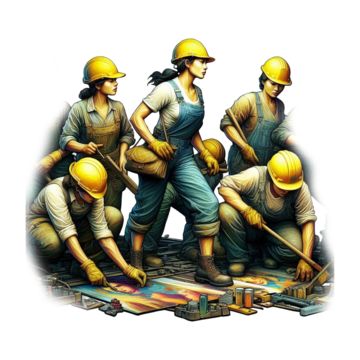International Workers Day: Celebrating the Power of Workers Worldwide
Introduction: International Workers Day
Every year on May 1st, people around the world come together to celebrate International Workers Day, also known as Labour Day in many countries. This day is an essential observance to recognize the importance of workers and their contributions to society, economy, and the wellbeing of their communities. International Workers’ Day is a day for solidarity, where workers from all walks of life unite to fight for better rights, fair wages, and improved working conditions.
This day has its roots in the labor movement that fought for improved working conditions, including the eight-hour workday, fair wages, and workers’ rights to organize. It is not just a celebration but also a reminder of the ongoing struggles workers face in various industries across the world.
History of International Workers Day
The origins of International Workers’ Day date back to the late 19th century, specifically to the labor movement in the United States. The Haymarket Affair in Chicago in 1886 marked a pivotal moment in labor history. Workers were protesting for an eight-hour workday when a bomb exploded during a rally at Haymarket Square, resulting in the deaths of several police officers and civilians.
Although the Haymarket Affair is linked to violence, the event became a symbol for workers’ struggles globally, and the idea of a day to honor laborers began to spread. The Second International, a global organization of socialist and labor parties, declared May 1st as the official day to celebrate the achievements of workers and to call attention to the ongoing fight for workers’ rights.
Facts About International Workers Day
- Global Observance: International Workers Day is observed in more than 80 countries worldwide, including countries like Mexico, Brazil, Germany, India, France, and Russia. The holiday is also known by different names, including Labour Day in some countries.
- Not Celebrated in the U.S.: While the rest of the world celebrates May 1st as International Workers’ Day, the United States observes Labor Day on the first Monday of September. The reason for this difference is rooted in historical events, particularly the U.S. government’s decision to establish an alternative holiday to suppress the influence of labor movements.
- Origins of the Eight-Hour Workday: One of the main goals of International Workers’ Day is to highlight the ongoing fight for fair labor practices. The eight-hour workday, which seems standard today, was once a radical idea. Workers fought for and achieved this victory through long struggles, and the day is dedicated to remembering this accomplishment.
- Political and Social Movements: In many countries, International Workers’ Day serves as an important day for political activism and protest. Workers, unions, and activists come together to highlight issues like income inequality, job insecurity, discrimination, and poor working conditions.
- The Role of Unions: Unions play a significant role in organizing International Workers’ Day events. They are responsible for advocating for workers’ rights, negotiating fair wages, ensuring workplace safety, and fighting for social and economic justice.
Significance of International Workers Day
- Highlighting Workers’ Rights: International Workers Day is an essential occasion to celebrate and advocate for workers’ rights. In many parts of the world, workers continue to face poor working conditions, long hours, and unfair wages. On this day, activists and unions raise their voices to remind governments and employers about the need to ensure fair treatment and protection for all workers.
- Social Justice and Equality: Workers’ struggles are tied to the broader fight for social justice and equality. International Workers’ Day draws attention to issues like gender inequality in the workplace, racial discrimination, and child labor. The day reminds us that true justice includes creating an environment where all workers, regardless of background or identity, are treated with fairness and dignity.
- Economic Impact: The labor force is the backbone of every economy. International Workers’ Day acknowledges the economic contribution of workers, whether they are in factories, offices, or agriculture. This day is a reminder that the prosperity of nations depends on the labor and effort of individuals, and their well-being should be prioritized.
- Unity and Solidarity: The global nature of International Workers’ Day emphasizes the solidarity between workers worldwide. Despite national borders, workers face similar challenges and share common goals. May 1st is a day for uniting voices, fighting for improved wages, and recognizing workers’ struggles across the globe.
- A Time for Reflection: While celebrating the progress that has been made in labor rights, International Workers’ Day also serves as a time for reflection. It encourages people to think about the struggles that remain in the fight for fair wages, workplace safety, and human dignity.
How to Observe International Workers Day
- Join Protests and Rallies: Across the globe, workers and their allies organize rallies, parades, and marches to advocate for labor rights. Participating in these events can amplify the voice for fair wages, better working conditions, and the recognition of workers’ dignity.
- Support Labor Unions: Show your support for labor unions that fight for workers’ rights. Whether through donations, volunteer efforts, or joining union events, supporting labor movements is an effective way to contribute to the ongoing fight for justice in the workplace.
- Raise Awareness: Use social media to raise awareness about the importance of workers’ rights. Share articles, videos, and quotes from labor leaders to inform others about the history and significance of International Workers’ Day.
- Support Ethical Businesses: Support businesses that prioritize ethical labor practices. Purchasing goods from companies that ensure fair wages, safe working conditions, and social responsibility helps promote positive labor practices in the global economy.
- Reflect on Worker Contributions: Take a moment to reflect on the hard work and dedication of individuals in various industries. Recognizing their contributions fosters appreciation for their role in shaping the world we live in.
Conclusion: International Workers Day
International Workers Day is not just a holiday, but a movement that continues to inspire people worldwide to stand up for workers’ rights, social justice, and fair wages. This day serves as a powerful reminder of the struggles workers have endured and the progress that still needs to be made. By celebrating and advocating for workers’ rights, we contribute to creating a fairer and more just world for all.










